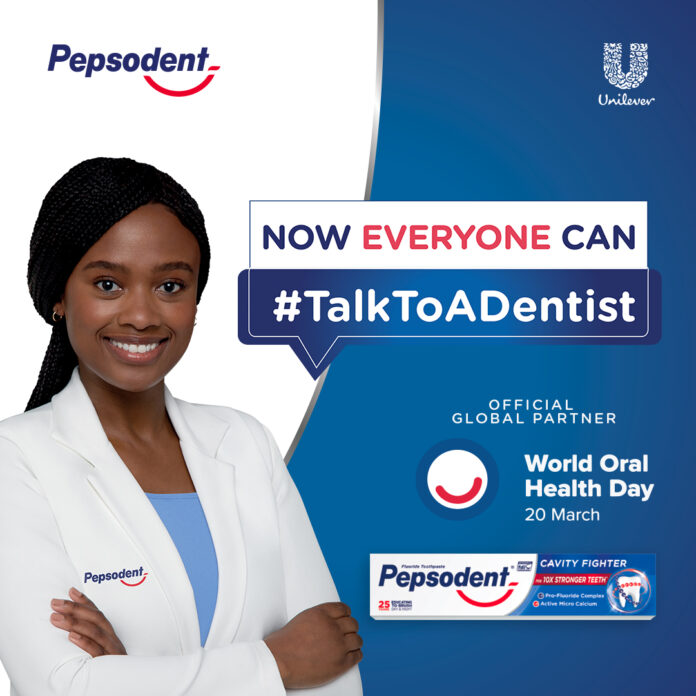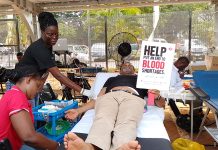Good oral health is a vital aspect of a person’s overall health and wellbeing. Dr. Kami Hoss, a best-selling author and thought leader in dental health says that “Oral health is another essential piece of the puzzle when it comes to staying healthy”.
Ever had a nagging tooth ache that just won’t go away? Bleeding gums that leave your toothbrush red every time you brush or the overly sensitive teeth that give you trouble whenever you take anything hot or cold? Now imagine living the rest of your life this way.
These conditions could significantly affect your quality of life and wellbeing and may even impact your economic opportunities. But it would also mean that you would be suffering from largely preventable pain.
This is unfortunately the reality of many Ghanaians.
Despite the efforts to increase the number of trained dentists available in Ghana, the percentage of Ghanaians seeking dental care is alarmingly low.
Studies conducted in Ghana have shown that the availability and accessibility of dental services alone are not sufficient to motivate Ghanaians to visit the dentist.
Experts from the Ghana Dental Association (GDA) continue to raise awareness on other barriers that may prevent Ghanaians from obtaining dental consultation and treatment.
According to the latest statistics, the most significant barrier to accessing dental care in Ghana is cost, as reported by an estimated 80% of Ghanaians.
Due to the lack of information on the importance of the dentist and good oral care, many people avoid dentist visits in favour of other costs they deem more important.
Statistics also show that 53% of Ghanaians have never visited a dentist because it’s too expensive and lack of access because of barriers like cost means that problems often go untreated leading to permanent loss of teeth.
So, in the long run, the issue of cost can be curbed by visiting a dentist in the early stages of oral disease before cases become severe.
Another key barrier is the fear of dentists. By GDA standards, the level of dental fear among adults in Ghana is considered high.
This fear may be attributed to the lack of education surrounding oral healthcare and the scary tales that those who have had painful experiences come back with from the dentist.
People tend to have perceptions of the dentist’s office being a terrifying place and they cannot unlearn this fear until they are educated about the benefits of dentist visits and encouraged to visit dental clinics regularly.
The World Health Organisation recommends 1 dentist for every 7,500 people However, in Ghana there are fewer than 1(0.1) dentist per 10,000 people. Considering 43% of the Ghanaian population lives in rural areas, but 70% of dental professionals are concentrated in major towns and cities, Ghanaians located in rural areas continue to consider accessibility as a big challenge. Given this severe lack of access millions of people have never been to a dentist
Apart from cost, fear and availability of dental professionals, language has also proven to be a major barrier to accessing dental care in Ghana. Ghana has approximately 50 indigenous languages spanning the 16 regions of the country.
This means that there is still a substantial number of Ghanaians that do not speak English, the language most dental practitioners primarily use to communicate with their patients.
This can create a wider gap between the dentist and patient because patients may misunderstand their diagnoses, treatment options and aftercare instructions. They may also feel misunderstood and may find the treatment they received to be inadequate.
To address the situation, a range of alternative approaches can be introduced, such as leveraging tele-health, subsidizing the cost of dental care and education and sensitization of Ghanaians on the need for regular dentals visits and prioritizing oral care to ensure general wellbeing.
Tele-dentistry involves providing real time dental consultations via digital and mobile means. It offers recipients of the service an opportunity to receive professional dental care and support to manage minor oral health concerns without having to go to a dental clinic.
Given the limited availability and proximity of dental professionals, scaling up a Tele-dentistry program is a practical solution to bridging the urban-rural divide and making access to dental consultations much easier and more efficient, ultimately encouraging a larger proportion of the population to seek dental treatment and not wait until it is too late to see a dentist.
As Ghana get sets to mark World Oral Health Day, it is imperative for key stakeholders to join hands in addressing the many obstacles facing the Ghanaian populace in having access to good oral health care and systems.
Ghana’s leading oral care brand Pepsodent, is already playing a key role in partnership with the Ghana Dental Association, through its long-standing behaviour change program in schools and communities.
It is only by working together to educate people about the importance of oral health and making treatment more accessible and affordable, that we will improve oral health outcomes and overall wellbeing in Ghana.














































